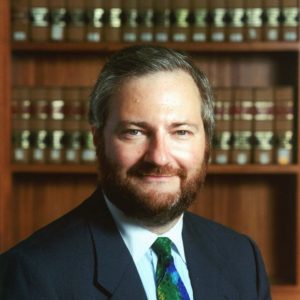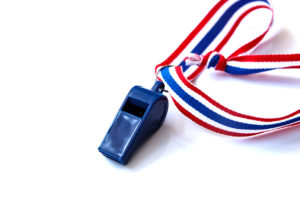CURRENT MONTH (August 2021)
Ethics and Professional Responsibility
What is Reciprocal Discipline?
by Keith R. Fisher
Many of us have experienced (to our chagrin) getting “points” (really demerits) on our driver’s licenses or suffering the potential for license suspension because of a traffic violation that occurred in another state. Reciprocal discipline in legal ethics is conceptually similar: It is the practice of subjecting a lawyer licensed in Jurisdiction B to discipline for misconduct that occurred, and resulted in disciplinary action involving the same lawyer, in Jurisdiction A. In other words, misconduct that led to discipline in one state can lead to discipline in another state without any further or separate allegation of misconduct in that second state.
The principal rationale for reciprocal discipline is protecting the public from injury that might occur if a lawyer disbarred or suspended in Jurisdiction A is permitted to continue to practice in Jurisdiction B. Other rationales include maintaining public confidence in the administration of justice and upholding the integrity of the legal profession.
While this phenomenon usually takes place between or among states, it also can result in suspension or disbarment from practice in the federal courts. This is because typical rule language (such as Fed. R. App. P. 46) predicates admission to the bar of a federal court on a lawyer’s being “of good moral and professional character” and contemplates suspension or disbarment when the same has taken place “in any other court.” Courts are widely regarded, as the Preamble to the ABA Model Rules for Lawyer Disciplinary Enforcement (the “MRLDE”) asserts, as enjoying “inherent” authority to “maintain appropriate standards of professional conduct.”
Reciprocal discipline in federal court is not, however, automatic. As the U.S. Supreme Court has noted, “Though admission to practice before a federal court is derivative from membership in a state bar, disbarment by the State does not result in automatic disbarment by the federal court. Though that state action is entitled to respect, it is not conclusively binding on the federal courts.”
A recent D.C. Circuit decision illustrates the process. The former general counsel (the “G.C.”) of a public interest organization went on to represent three clients who were adverse to that organization. Model Rule 1.9(a) addresses this situation clearly: “A lawyer who has formerly represented a client in a matter shall not thereafter represent another person in the same or a substantially related matter in which that person’s interests are materially adverse to the interests of the former client unless the former client gives informed consent, confirmed in writing.” This rule has been pervasively adopted by the states, though a small minority, such as Illinois and Michigan, have dispensed with the “confirmed in writing” requirement. The D.C. Board on Professional Responsibility found, after a hearing, that the G.C. had violated D.C.’s Rule 1.9, and in 2020 the D.C. Court of Appeals suspended him for 90 days. In March 2021, the U.S. Court of Appeals for the D.C. Circuit, rejecting arguments made on the G.C.’s behalf by the late Professor Ronald Rotunda, concurred with these conclusions and imposed identical reciprocal discipline (though beginning on a later date).
Here are some of the key things about reciprocal discipline that a lawyer should know:
- A lawyer licensed in Jurisdictions A and B must, if those jurisdictions have adopted MRLDE 22(A), report to the appropriate authority in B (which could be another state or could be one or more federal courts) that he or she has been subject to discipline in A. Note that disciplinary authorities also have access to the ABA’s National Lawyer Regulatory Bank. Typically, reciprocal discipline in B will be identical unless it is determined that the imposition of the same discipline would be fundamentally unfair. Reciprocal discipline in B can be more severe in some jurisdictions (e.g., Florida, D.C.), but in others (e.g., Utah) that is impermissible.
- In general, under MRLDE 22(D)-(E), discipline from A is conclusive in B that the misconduct charged occurred, unless —
- “The procedure was so lacking in notice or opportunity to be heard as to constitute a deprivation of due process; or
- There was such infirmity of proof establishing the misconduct as to give rise to the clear conviction that the court could not, consistent with its duty, accept as final the conclusion on that subject; or
- The discipline imposed would result in grave injustice or be offensive to the public policy of the jurisdiction;
- The reason for the original transfer to disability inactive status no longer exists.”
- If a lawyer has not yet been subjected to discipline but only charged in A with a disciplinary violation, the proceeding is public, except for (1) deliberations of the hearing committee, board, or court; or (2) information with respect to which the hearing committee has issued a protective order. The appropriate disciplinary authority in B may then decide to commence its own investigation.





